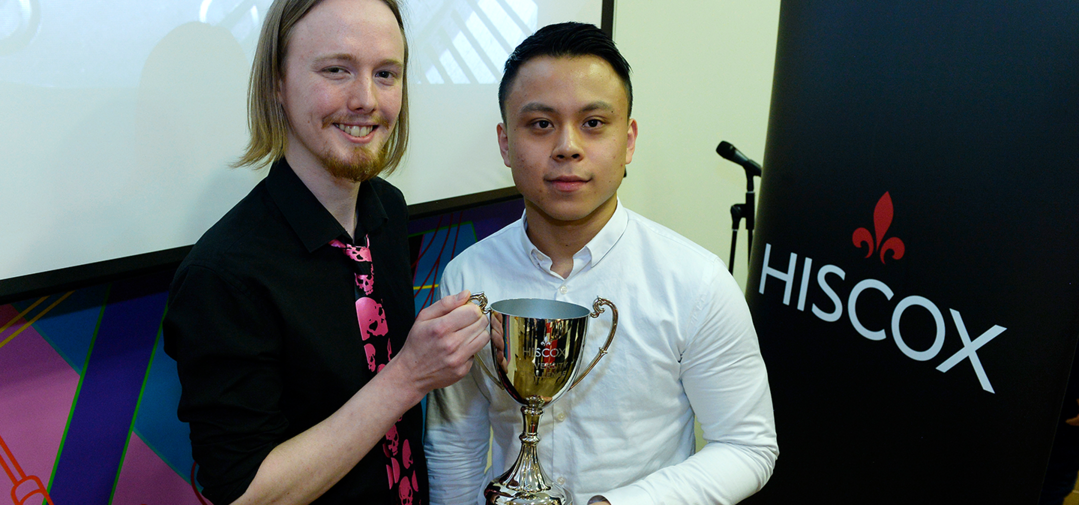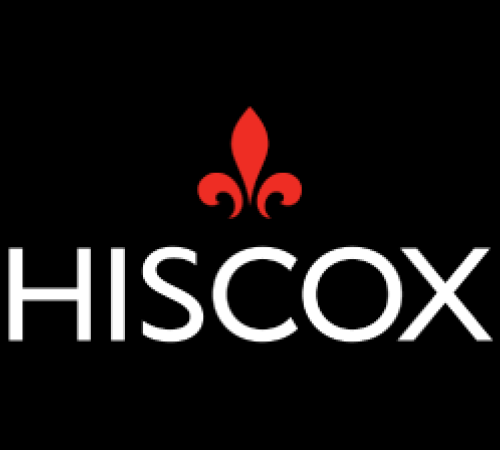

Developing these insurance products requires meticulous analyses, innovative thinking, and commercial acumen. Which is why we’ve challenged four universities to create an insurance product for this eventuality, which could be used by real businesses.
In 2006, Cadbury-Schweppes paid a £1 million fine and recalled more than a million chocolate bars over a salmonella scare.*
In 2008, their salmonella-tainted products saw Peanut Corp of America go bankrupt and the CEO served with a 28-year prison sentence.*
By 2011, Toyota had recalled over 10 million vehicles with faulty accelerators, costing billions in recalls, penalties, lawsuits and lost sales.*
About the challenge
To be in with a chance of winning, each student team must complete two tasks in the Hiscox University Data Challenge.
Challenge 1
The Risk Management Strategy
The teams must analyse industry data to understand the triggers that cause product recalls. They will then create a business strategy to prevent and manage these risks.
Challenge 2
The Insurance Product
Using what they’ve learned from their risk management strategy, the teams must design an insurance product for product recalls.
The teams will need to make sure their insurance maximises profit for the insurer while offering the protection that businesses need when faced with a product recall crisis.
Each university team that enters this challenge will essentially create the lifelines that real businesses rely on every day to save their company millions.
Meet the teams
University of Leeds
Team 1
Team leader
- Lawrence Ning Lu
Team members
- Lukas Cironis
- Benjamin Sultanovic
- Ausrine Rimeikyte
- Ting Wang
- Ningqian Yang
- Zeyu He
What is your team’s idea?
We’re looking at product recalls in the medical industry, analysing recall communications, stock signals and outsourcing concentration risk – the risk of relying on one provider, especially if they fail. We call this the ‘Trump Effect.’
Why should your team win?
We’ve gone to great effort to validate our assumption; we’ve even spoken to medical practitioners about the recall process. Our strength doesn’t just lie in what we’ve established, but how we constantly question whether it’s useful for Hiscox underwriters.
What was the most enjoyable moment?
We love this game because it’s a team-sport challenge where we have to compete internally as well as work together as a team. It’s the ‘Aha moment’ that we’re looking forward to – to creating it and enjoying it at the end of the journey.
What knowledge have you gained?
We’ve learned to price something unlikely to be priced, using not just the data at hand, but also seeking out data that’s invisible to the challenge or seems almost impossible to obtain. It’s not just about how technically we can perform either, it’s how much business value we could deliver too.
University of Leeds
Team 2
Team leader
- Amanda Otley
Team members
- Isabelle Dooley
- Yihan Fan
- Laura Garcia Blasco
- Athanasios Sakkas
- Ghayda Alghamdi
What is your team’s idea?
We’re looking at the impact of policy change and food regulation on product recalls. We believe contextual information such as intervention policies that prevent food-borne diseases, state tax benefit and industry competition can play a significant role in understanding and predicting product recall.
Why should your team win?
We’ve not only considered routine information from a well-established database, but also the unstructured information such as regulation trends and communication patterns.
What was the most enjoyable moment?
We love this game because it’s a team-sport challenge where we have to compete internally as well as work together as a team. It’s the ‘Aha moment’ that we’re looking forward to – to creating it and enjoying it at the end of the journey.
What knowledge have you gained?
We’ve learned to price something unlikely to be priced, using not just the data at hand, but also seeking out data that’s invisible to the challenge or seems almost impossible to obtain. It’s not just about how technically we can perform either, it’s how much business value we could deliver too.
University of Cambridge
Team leader
- Christian Lund
Team members
- Julius Bier Kirkegaard
- Thomas Brown
What is your team’s idea?
A central aspect to insuring product recalls is to understand why they’re happening. This data is recorded by the FDA, but not in a systematic way. We’re creating a clean and structured database of recall reasons, together with a visualisation tool, so you can understand and visualise the landscape in seconds.
Why should your team win?
What can be more important for understanding product recalls than knowing why they happen? This is what we deliver.
What was the most enjoyable moment?
Tackling a real problem that’s fraught with all the noise and irregularity of the real world. No simplifying academic assumptions can help you solve it. That is fun.
What knowledge have you gained?
This competition has provided us with a unique chance to see what real world data science actually looks like.
University of Surrey
Team leader
- Stewart Hutchins
Team members
- Xuhui Li (Kevin Lee)
- Courtney Elmy
- Will Bennet
What is your team’s idea?
We’re analysing strings within FDA data. We associated food descriptions, the reason for a recall and the quantity of products recalled with machine readable words, phrases, and values. This helped us identify the underlying causes and most pressing concerns relating to manufacturing.
Why should your team win?
Our proposal combines potentially overlooked analytics and an efficient use of Tableau to uncover significant insights to further our research. We believe our conversion of qualitative variables into quantitative variables is particularly innovative.
What was the most enjoyable moment?
We enjoyed meeting and bouncing ideas off each other, it allowed us to understand and implement new innovative ideas together. It was always fun to meet, discuss our work, and crack the occasional joke.
What knowledge have you gained?
We gained skills in data presentation: how to present findings clearly and concisely, using graphics to aid understanding. We’ve also developed an appreciation of how much data can be held within a free form string as well as the process of extracting data from it.
Surrey University take the prize!

Surrey students Stewart Hutchins, Xuhui Li, Courtney Elmy and Will Bennet scooped up first prize this week in the Hiscox University Data Challenge.
Entering the competition for the first time this year, the team took an inspired approach to building machine-readable recall data, as well as creating thorough guidance on reducing the impact of product recalls.
After six months of hard work from all the teams, Surrey University walk away with the trophy, £1,000 for their Maths Society, and fast-tracked entry to the Hiscox graduate assessment programme.
Runners up Leeds and Cambridge each received £250 for their societies for their excellent contributions to the competition.
References
http://news.bbc.co.uk/1/hi/england/6900467.stm (external link)
Read more about Hiscox small business insurance in our guide.
Disclaimer:
At Hiscox, we want to help your small business thrive. Our blog has many articles you may find relevant and useful as your business grows. But these articles aren’t professional advice. So, to find out more on a subject we cover here, please seek professional assistance.






